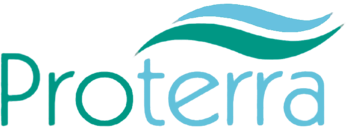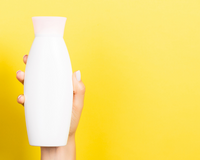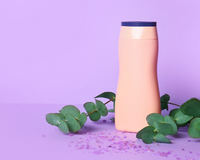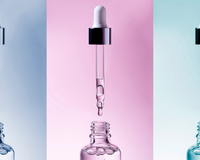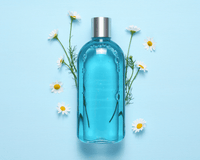Anti-Aging Products Ingredients
Is there a bigger and more important word in skin care than "anti-aging"? In a society that places so much value on looking young, the claims made about anti-aging products ingredients in skin-care products are...well, let's just say they're not easy to believe.
The truth is that nothing you do to take care of your skin can completely stop, stop aging, or turn back the natural aging process we all go through. And how quickly your skin shows its age depends on many things, like your genes, your environment, and how well you take care of your skin.
And, of course, you shouldn't feel like you have to do anything about wrinkles, fine lines, or dark spots on your skin that come with age. Wrinkles are not a sign of a health problem, and it is up to you whether or not you want to try to get rid of them.
What Are The Main Anti-Aging Products Ingredients?
So, what do we do with these skin care products that claim to stop aging? Well, many of the most powerful "anti-aging" ingredients in these serums and creams do have well-known benefits, some of which may give some people a more youthful appearance. For example, if you want to get rid of fine lines and wrinkles, you might want to use something that hydrates and moisturizes the skin, which can make it look fuller. And products that gently exfoliate the skin will help reduce a number of signs of aging, such as texture and pigmentation problems, as well as acne.
In this area of skin care, too, people are always coming up with new ideas that may or may not be backed up by evidence. So, here are the anti-aging ingredients that dermatologists keep recommending and that have stood the test of time. These are the things you should look for in skin-care products if you're looking for something to help with signs of aging.
Retinol
Along with sunscreen, retinoids like retinol are the ingredients in skin care products that have the most proof that they slow down the aging process. All of the retinoids are natural forms of vitamin A. But when you eat foods like milk, eggs, carrots, and broccoli that contain vitamin A, your body needs to change the preforms and provitamins of vitamin A into an active form that you can use.
The first step on that path is retinol. Topical retinoids, like retinol, speed up the normal process of skin cell turnover. This means that your skin will shed skin cells more quickly. That helps with problems like fine lines, wrinkles, dark spots, and acne. Researchers also think that retinol can help make more collagen, which slows down the aging process.
Another big benefit of using retinol is that it can be found almost anywhere. You don't need a prescription to buy retinol because you can buy it over-the-counter at drugstores and in high-end products.
Vitamin C
Vitamin C is one of the most common active ingredients in skin care products today. It works as an antioxidant to protect against damage caused by free radicals and stop them from doing damage in the first place. Also, it can be used to make dark spots look better over time.
But it can also be a surprising challenge to use in the right way. It breaks down when exposed to light, for example, so you should only buy vitamin C in airtight, opaque packaging that keeps it from going bad. It also comes in different concentrations, from 5% to 20%, so the effects and side effects, like irritation, may be very different from one product to the next.
Niacinamide
This ingredient is a form of vitamin B3 that is becoming more popular in skin care products. It has shown promise in preventing damage from free radicals, lightening dark spots, and treating acne. Some research shows that it can brighten skin with fewer side effects or irritation than other first-line treatments like hydroquinone. This is good news for people with sensitive skin.
Your dermatologist can't give you a prescription for niacinamide on its own, but this ingredient can be put into a lot of different topical prescriptions. Niacinamide is also available over-the-counter in more and more places.
Salicylic Acid
You may be more familiar with salicylic acid as a treatment for acne, but this beta-hydroxy-acid (BHA) has powerful exfoliating properties that make it a good choice for dealing with signs of aging as well. There is also some evidence that it can help the body make more collagen.
Salicylic acid is different from other chemical exfoliants because it dissolves in oil, so it can get deeper into your oily pores. So, salicylic acid could be a key ingredient for you if your skin is very oily or prone to acne.
Glycolic Acid
Glycolic acid is one of the two most important alpha-hydroxy acids (AHAs). It is a chemical exfoliant that is often used in peels, exfoliating toners, pads, cleansers, and creams. It works by getting rid of the glue that holds skin cells together. So, when you wipe your skin, you get rid of those dead skin cells and show the smoother skin underneath.
Glycolic acid is great for getting rid of wrinkles, fine lines, and hyperpigmentation, which are all signs of aging. But you should know that its effects depend on how much glycolic acid is in the product you use. Most over-the-counter products, like toners, have between 5 and 7 percent glycolic acid, and the most they can have is around 10 percent. You can use these a couple of times a week.
Lactic Acid
Lactic acid is another AHA that is often more gentle. It works like other chemical exfoliants in that it gets rid of dirt and dead skin cells, but it is usually easier on skin that is sensitive. Because of this, it's also a good choice for people with dry skin that other exfoliants might irritate.
Some products combine lactic acid with salicylic acid and/or glycolic acid so that you can still get the benefits of those anti-aging products ingredients with less chance of irritation.
Azelaic Acid
This is another kind of acid that can help get rid of dead skin. But there's more! Researchers have found that azelaic acid can also make dark spots and melasma less noticeable. Products with the most azelaic acid are only available with a prescription, but many people find that over-the-counter products with lower concentrations of azelaic acid work just as well.
